Related Research Articles

The Royal Society of Chemistry (RSC) is a learned society and professional association in the United Kingdom with the goal of "advancing the chemical sciences". It was formed in 1980 from the amalgamation of the Chemical Society, the Royal Institute of Chemistry, the Faraday Society, and the Society for Analytical Chemistry with a new Royal Charter and the dual role of learned society and professional body. At its inception, the Society had a combined membership of 49,000 in the world.
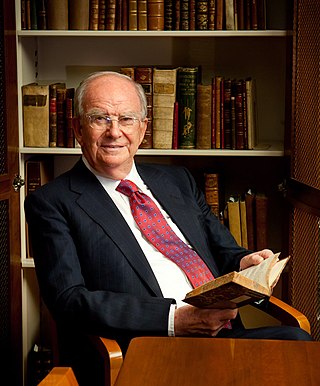
Sir John Meurig Thomas, also known as JMT, was a Welsh scientist, educator, university administrator, and historian of science primarily known for his work on heterogeneous catalysis, solid-state chemistry, and surface and materials science.
Peter Day, FRS, FRSC, FInstP was a British inorganic chemist and Professor of Chemistry at Oxford University and later at University College London (UCL).

Malcolm Leslie Hodder Green was Professor of Inorganic Chemistry at the University of Oxford. He made many contributions to organometallic chemistry.

Sir David Charles Clary, FRS is a British theoretical chemist. He was president of Magdalen College, Oxford, from 2005 to 2020. He was the first chief scientific adviser to the Foreign and Commonwealth Office from 2009 to 2013. He is a Professor of Chemistry at the University of Oxford.
Professor Malcolm Smyth is an Irish chemist. He is also the dean of the Faculty of Science & Health at Dublin City University, in Dublin, Ireland. Smyth is also the president of the Analytical Division of the Royal Society of Chemistry (RSC) and is the first analytical chemist from the Republic of Ireland to hold the position. He has received awards from the Royal Society of Chemistry (RSC) and the SAC Gold Medal for Analytical Chemistry from the Analytical Division of the RSC.
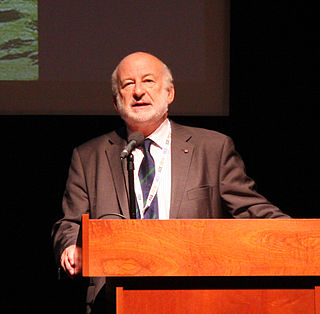
John Anthony Pickett is a British chemist who is noted for his work on insect pheromones. Pickett is Professor of Biological Chemistry in the School of Chemistry at Cardiff University. He previously served as the Michael Elliott Distinguished Research Fellow at Rothamsted Research.
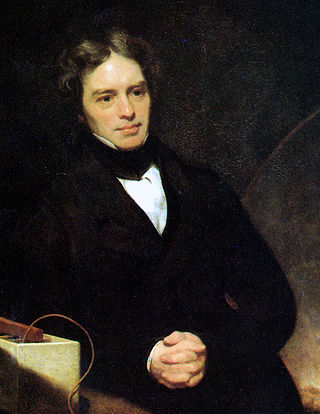
The Faraday Lectureship Prize, previously known simply as the Faraday Lectureship, is awarded once every two years (approximately) by the Royal Society of Chemistry for "exceptional contributions to physical or theoretical chemistry". Named after Michael Faraday, the first Faraday Lecture was given in 1869, two years after Faraday's death, by Jean-Baptiste Dumas. As of 2009, the prize was worth £5000, with the recipient also receiving a medal and a certificate. As the name suggests, the recipient also gives a public lecture describing his or her work.

Alan Carrington CBE, FRS was a British chemist and one of the leading spectroscopists in Britain in the late twentieth century.
Sir Charles Richard Arthur Catlow FLSW is a British chemist and professor at University College London and Cardiff University. Previously, he was Director of the Davy-Faraday Research Laboratory (1998–2007), and Wolfson Professor of Natural Philosophy at the Royal Institution. Since 2016, he has served as the foreign secretary of the Royal Society., and since 2021 as President of the InterAcademy Partnership (IAP).

Sir John Vincent McCanny is the emeritus Regius Professor of Electronics and Computer Engineering at Queen's University Belfast, and director of the Institute of Electronics, Communications and Information Technology.
Guy Charles Lloyd-Jones FRS FRSE is a British chemist. He is the Forbes Professor of Organic Chemistry at the University of Edinburgh in the United Kingdom. His research is largely concerned with the determination of organometallic reaction mechanisms, especially those of palladium-catalyzed coupling reactions such as Suzuki-Miyaura coupling.

Dame Clare Philomena Grey is Geoffrey Moorhouse Gibson Professor in the Department of Chemistry at the University of Cambridge and a Fellow of Pembroke College, Cambridge. Grey uses nuclear magnetic resonance spectroscopy to study and optimize batteries.
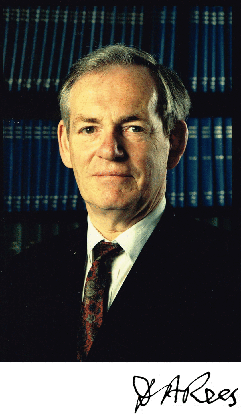
Sir David Allan "Dai" Rees, FRS was a British biochemist and science administrator who was chief executive of the Medical Research Council between 1987 and 1996.

Gideon John Davies is a professor of chemistry in the Structural Biology Laboratory (YSBL) at the University of York, UK. Davies is best known for his ground-breaking studies into carbohydrate-active enzymes, notably analysing the conformational and mechanistic basis for catalysis and applying this for societal benefit. In 2016 Davies was appointed the Royal Society Ken Murray Research Professor at the University of York. Gideon Davies has recently been elected to the Council of the Royal Society.

David Parker is an English chemist, Chair Professor at Hong Kong Baptist University, and Emeritus Professor at the University of Durham.

Paul O'Brien was professor of Inorganic Materials at the University of Manchester. where he served as head of the School of Chemistry from 2004 to 2009 and head of the School of Materials from 2011 to 2015. He died on 16 October 2018 at the age of 64.
Nicholas John Turner, is a British chemist and a Professor in the Department of Chemistry at The University of Manchester. His research in general is based on biochemistry and organic chemistry, specifically on biotechnology, cell biology, biocatalysis and organic synthesis.
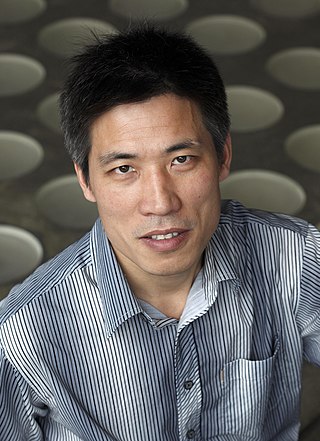
Junwang Tang, MAE, FRSC and FIMMM, is the Founding Director of Industrial Catalysis Center, and Carbon Neutrality Chair Professor of Materials Chemistry and Catalysis at the Department of Chemical Engineering, Tsinghua University and Visiting Professor at University College London (UCL). He also served as the Director of the University Material Hub at UCL (2016–2019).
References
- ↑ Prof Graham Hutchings - FLSW FRS (27 May 2011). "Professor Graham Hutchings BSc PhD DSc CEng CSci CChem FIChemE FRSC FLSW FRS". Cardiff.ac.uk. Retrieved 8 August 2012.
- ↑ "Prof Graham Hutchings - FLSW FRS". University of Cardiff. Retrieved 12 September 2013.
- 1 2 "Graham Hutchings elected FRS". Cardiff School for Chemistry. Retrieved 27 July 2013.
- ↑ "Appointments". Times Higher Education. 15 July 2010. Retrieved 8 August 2012.
- ↑ "Cardiff University chemistry professor's royal title". www.bbc.com/news/. BBC News. 9 December 2016. Retrieved 3 March 2017.
- ↑ "Surfaces and Interfaces Award".
- ↑ "Davy Medal - Most recent medallist". The Royal Society. Retrieved 12 September 2013.
- ↑ "Faraday Lectureship Prize". RSC. Retrieved 19 May 2018.
- ↑ "IChemE Fellows receive Queen's Birthday Honours". IChemE. Archived from the original on 13 June 2018. Retrieved 13 June 2018.